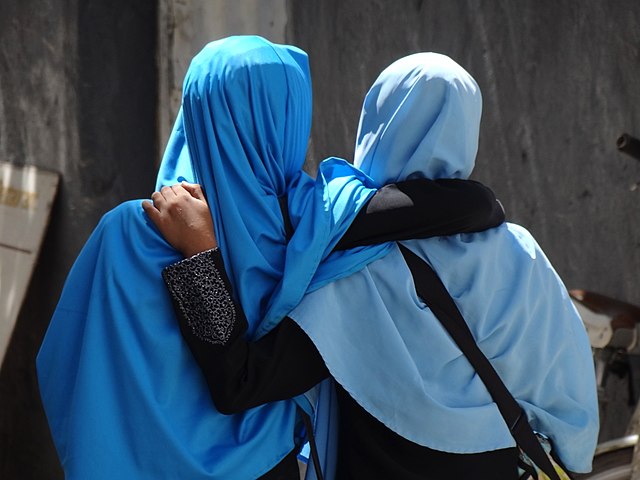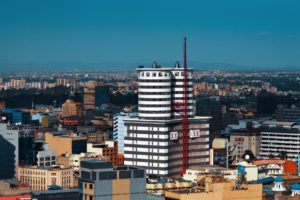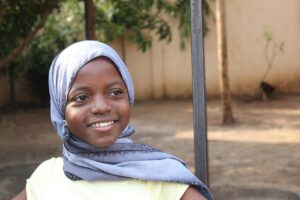Ramadan in Kenya and Tanzania: A Sacred Month of Fasting and Community
In this post we’ll learn about Ramadan in Kenya and Tanzania. Ramadan (Ramadhani in Swahili, رمضان in Arabic) is a deeply spiritual and culturally significant month for Muslims worldwide. This of course includes the Muslim populations of Kenya and Tanzania. It is a time of saumu (fasting, from Arabic ṣawm, صوم), swala (prayer, from Arabic salāh, صلاة), and zaka (charity, from Arabic zakāt, زكاة), and reflection. Since both Kenya and Tanzania have sizable Muslim populations, particularly along their coastal regions, many people there observe Ramadan. This brings a unique blend of Swahili and Islamic traditions to the month.
Fasting and Daily Rituals of Ramadan in Kenya and Tanzania
Ramadan does not fall at the same time each year. It is the ninth month of the Islamic lunar calendar. In 2025, Ramadan began on the evening of Friday, February 28, and conclude on Sunday, March 30. In 2026, it will begin on February 17th and end on March 18th. The exact dates may vary slightly based on the sighting of the moon, which traditionally determines the start and end of the month. Over time, Ramadan cycles through different months of the Gregorian calendar, even falling in summer or winter.
The fast begins at alfajiri (dawn, from Arabic fajr, فجر) and ends at magharibi (sunset, from Arabic maghrib, مغرب). There is no food or drink consumed during daylight hours. The pre-dawn meal, known as daku in Swahili or suhur (سحور) in Arabic, is an essential part of the day. It helps worshipers sustain their energy during the fast. Common daku/suhur dishes in Kenya and Tanzania include viazi vya nazi (potatoes cooked in coconut milk), mahamri (Swahili-style fried bread), and uji wa muhogo (cassava porridge).
Observant people break their fast in the evening with futari in Swahili, from Arabic iftar (إفطار). This is a meal that starts with tende (dates) and water, in accordance with the Sunnah of Prophet Muhammad. Next come heartier dishes such as sambusa (samosas), bajia (chickpea fritters), mshikaki (grilled meat skewers), and mkate wa sinia (coconut rice cake). Urojo, a popular Zanzibar street food soup made with potatoes, mango, tamarind, and crispy toppings, is also a favorite during futari.
Community and Worship
Ramadan is not just about abstaining from food but also about deepening one’s spirituality and sense of community. Misikiti (Mosques) in both Kenya and Tanzania, such as Mombasa’s Masjid Shibu and Zanzibar’s Old Fort Mosque, are full of worshipers attending tarawehe (from Arabic taraweeh تراويح), the special night prayers held during Ramadan.
Giving to the less fortunate is an essential part of Ramadan, with Muslims contributing to Zaka ya Fitra (from Arabic zakat al-fitr زكاة الفطر. This is a form of charity that ensures that even the needy can celebrate Eid. Many families prepare food packages for their neighbors, while local organizations distribute meals to those in need.
Ramadan in Coastal Towns
In the coastal regions of Kenya and Tanzania, where people have practiced Islam for centuries, Ramadan takes on a particularly festive atmosphere. Streets in places like Mombasa, Lamu, and Zanzibar come alive in the evenings with bustling food markets. There, vendors sell special Ramadan treats such as kaimati (sweet fried dough balls) and visheti (cardamom-flavored snacks).
Lamu, a UNESCO World Heritage Site, is especially famous for its communal futari/iftar gatherings, where entire neighborhoods come together to break the fast. The recitation of the Qur’an, tilawa in Swahili (from Arabic tilāwah تلاوة) echoes from mosques, and the scent of spiced rice dishes fills the air.
The Spirit of Ramadan
Ramadan in Kenya and Tanzania is more than just fasting—it is a time of unity, charity, and devotion. The sense of community is palpable, with people of all backgrounds participating in the spirit of giving and reflection. As the month concludes with the joyous celebration of Eid al-Fitr, the bonds formed during Ramadan continue to strengthen the social fabric of these East African nations.
Ramadhani Njema! Ramadhan Kareem! (Blessed Ramadan!)
Get on the road to speaking Swahili with the Language Garage!
We hope you’ve enjoyed learning about Ramadan in Kenya and Tanzania. If you’d like to learn more:
- Follow us on Facebook, LinkedIn, BlueSky, Twitter, Threads, Instagram, or Pinterest. We publish lots of Swahili vocabulary, grammar, and culture notes, so it’s a great way to pick up some new vocabulary and practice.
- Check out our other posts on Swahili language, culture, and more.
- Enroll in affordable, flexible, and personalized private online Swahili lessons or sign up for a small group online Swahili class.
- Create a free Language Garage account to access tons of Swahili vocabulary, grammar, and culture.
Image Source Wikimedia Commons






